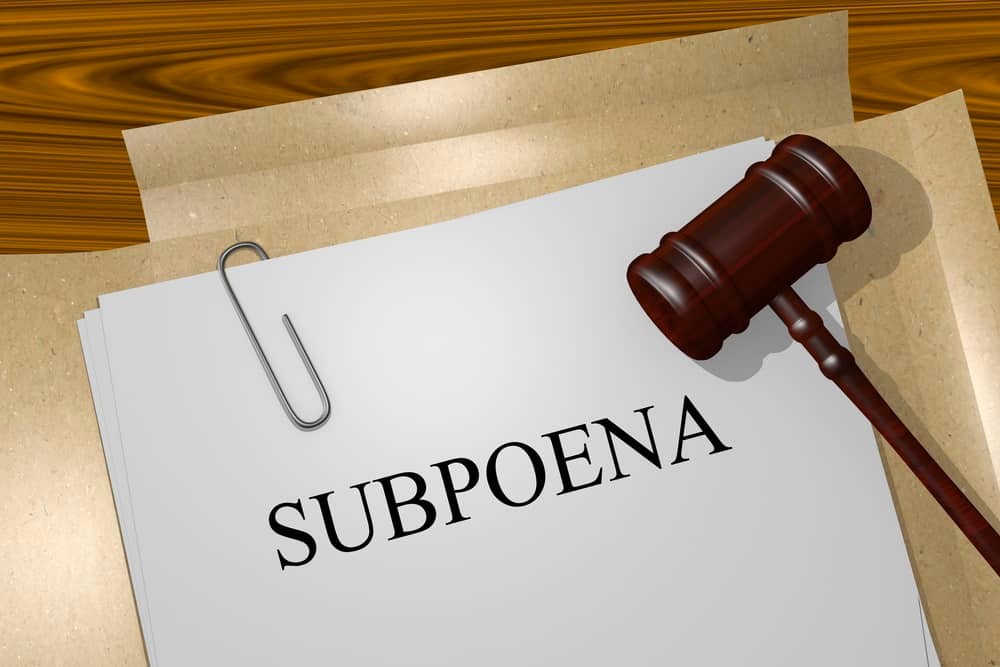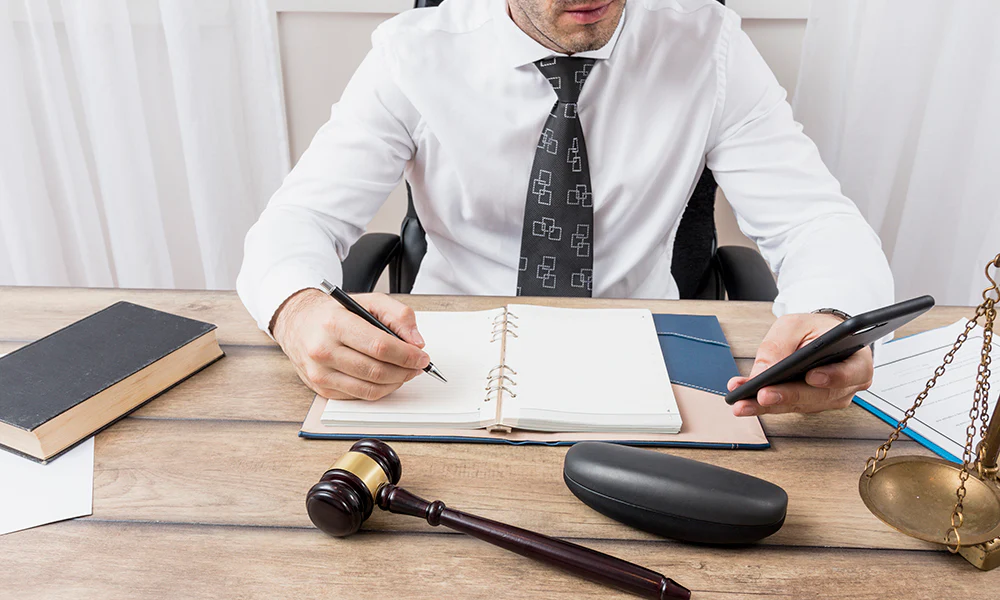Serving a subpoena properly is a critical aspect of the legal process, ensuring all parties have fair and equal access to the necessary information and witnesses. It plays a fundamental role in upholding the principles of justice.
Failing to serve a subpoena correctly can have serious legal ramifications. It may result in the evidence being excluded from the case, delays in proceedings, or even sanctions against the party responsible for the improper service. Knowing the ins and outs of proper subpoena service is imperative to avoid these potential pitfalls and maintain the integrity of the legal system.
What Is a Subpoena?
Definition and Purpose
A subpoena is a legal document that commands an individual to produce documents, testify as witness, or provide evidence in a legal proceeding. Its primary purpose is gathering essential information or testimony relevant to a case, ensuring a fair resolution.
Different Types of Subpoenas
There are various types of subpoenas tailored to specific needs. These include subpoenas duces tecum, which require the production of documents, and subpoenas ad testificandum, which compel witnesses to testify. Each type serves a unique function within the legal process.
When and Why Subpoenas Are Used
Subpoenas are employed when parties involved in a legal matter require crucial evidence or testimony to support their claims or defenses. They ensure transparency and fairness in legal proceedings, enabling both sides to present their case effectively.
Who Can Serve a Subpoena?
Legal Requirements for Subpoena Servers
When serving a subpoena, understanding the legal requirements is paramount. Subpoena servers must adhere to strict guidelines to ensure the process is legally sound. Firstly, they must be at least 18 years old and not a party to the case. Secondly, they must personally deliver the subpoena to the intended recipient or follow the appropriate state rules for alternative service methods if direct delivery is not feasible. Moreover, a subpoena server must accurately complete a proof of service document detailing how and when the subpoena was served. These legal prerequisites are essential to prevent any challenges to the subpoena’s validity.
Qualities of an Effective Subpoena Server
Effectiveness in serving a subpoena goes beyond merely following the letter of the law. An effective subpoena server possesses a set of qualities crucial for success. Firstly, they should be discreet and adept at locating individuals while respecting their privacy. Timeliness is critical, as subpoenas often have strict deadlines for service. Good communication skills are essential to interact professionally with all parties involved. Being organized helps keep track of multiple subpoenas and deadlines. Finally, attention to detail is non-negotiable, as even a small error in the serving process can lead to complications in legal proceedings. An effective subpoena server combines legal knowledge with practical skills to ensure a smooth and efficient process.
Steps to Properly Serve a Subpoena
Step 1: Preparing the Subpoena
To begin the process of serving a subpoena legally, the first step is preparing the subpoena itself. This document must clearly outline the information or documents being requested and include all necessary legal language. Ensuring that the subpoena is precise and complies with local jurisdictional requirements is crucial to avoid any complications in the service process.
Step 2: Identifying the Correct Recipient
Identifying the correct recipient is paramount when serving a subpoena. This entails confirming the individual or entity is legally obligated to respond to the subpoena. It’s essential to perform thorough research and verify their identity to prevent delays or challenges during the service process.
Step 3: Methods of Service
The service methods may vary depending on jurisdiction, but they typically include personal service, certified mail, or process servers. Understanding the specific requirements for your jurisdiction is essential to ensure the subpoena is legally served. Each method has nuances, so choosing the appropriate one is crucial for a successful service.
Step 4: Documenting the Service
Documenting the service of the subpoena is a critical step in the process. This involves creating a detailed record of when, where, and how the subpoena was served. Proper documentation ensures transparency and can be valuable in legal proceedings. Ensure to follow the necessary protocols for record-keeping to safeguard the legality of the service.
Common Mistakes to Avoid When Serving a Subpoena
Insufficient Information on the Subpoena
When serving a subpoena, it’s vital to ensure that all the necessary information is meticulously included. Only complete or precise subpoenas can delay and complicate legal proceedings. Double-check the names, dates, and details to ensure accuracy.
Serving the Wrong Person
One of the most common blunders in subpoena service is serving the wrong individual. Be diligent in confirming the recipient’s identity and status in the case, as serving the wrong person can not only hinder your case but also result in legal consequences.
Ignoring Service Rules and Timelines
Adhering to service rules and timelines is non-negotiable. Please do so to ensure the validity of your subpoena is maintained. Research and follow local regulations and deadlines to ensure your subpoena is legally sound.
Failing to Maintain Proper Documentation
Proper documentation is the backbone of a successful subpoena service. Keep meticulous records of all interactions, deliveries, and receipts related to the subpoena. This documentation can be invaluable in demonstrating the legitimacy of your actions in court.
Best Practices for Serving a Subpoena
Seek Legal Counsel
Consulting with an attorney specializing in the relevant law area is essential. They can guide the specific legal requirements and procedures involved in your case. Their expertise ensures that you follow the correct legal pathways, reducing the risk of complications.
Utilize Professional Process Servers
These experts are well-versed in the intricacies of legal document delivery, ensuring that the subpoena reaches its intended recipient in compliance with legal standards. Their experience minimizes the chances of delays or legal challenges associated with improper service.
Stay Informed About Local Rules and Regulations
Local rules can dictate the methods, timelines, and documentation required for serving a subpoena. Adherence to these regulations can ensure your case is successful. Stay informed to ensure your subpoena is legally sound and enforceable in your jurisdiction.
Also read: Reasons to Record Legal Data
The proper service of subpoenas is an indispensable pillar of our legal system, ensuring equitable access to information and witnesses in pursuing justice. Mishandling this crucial process can have dire consequences, including excluding vital evidence and legal penalties. This guide has illuminated the intricacies of serving subpoenas, from understanding their types and purposes to outlining the essential qualities of an effective server. By following the prescribed steps, avoiding common errors, and embracing best practices, one can navigate this terrain with confidence and competence.





